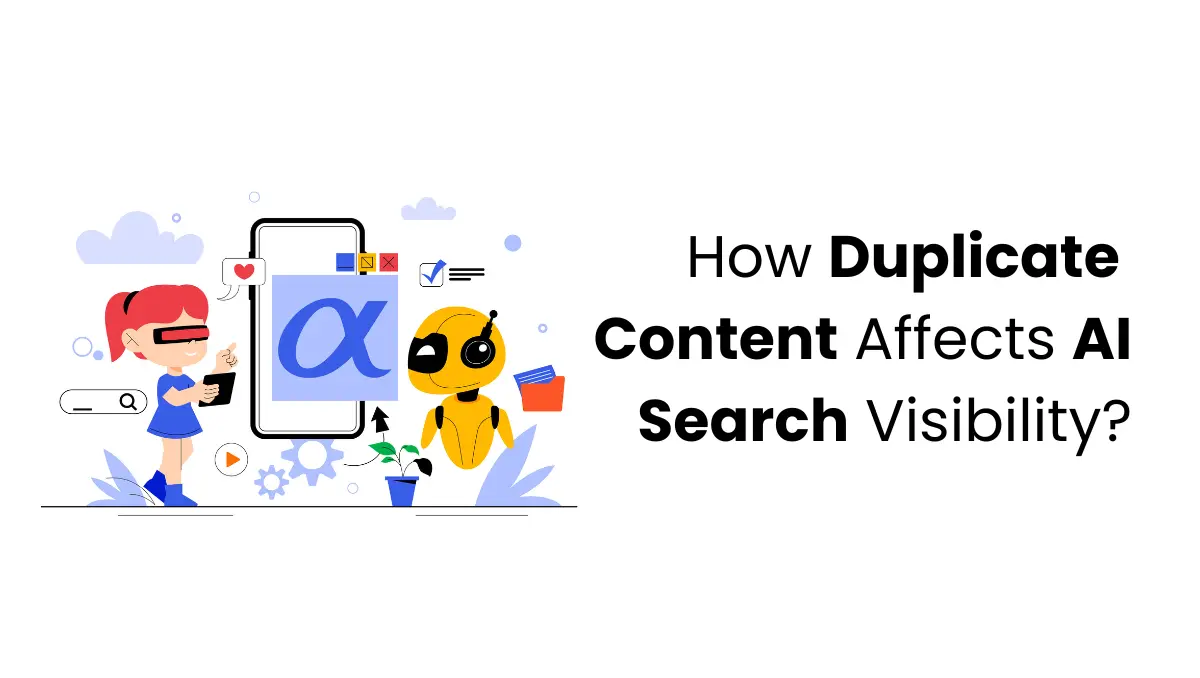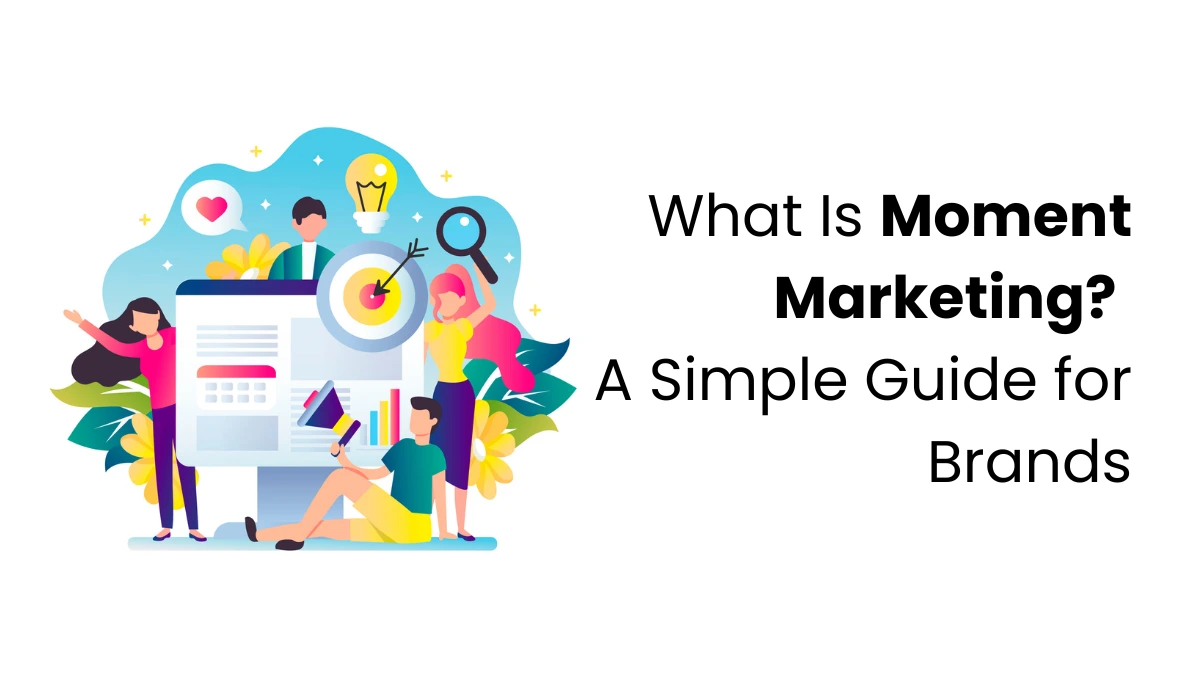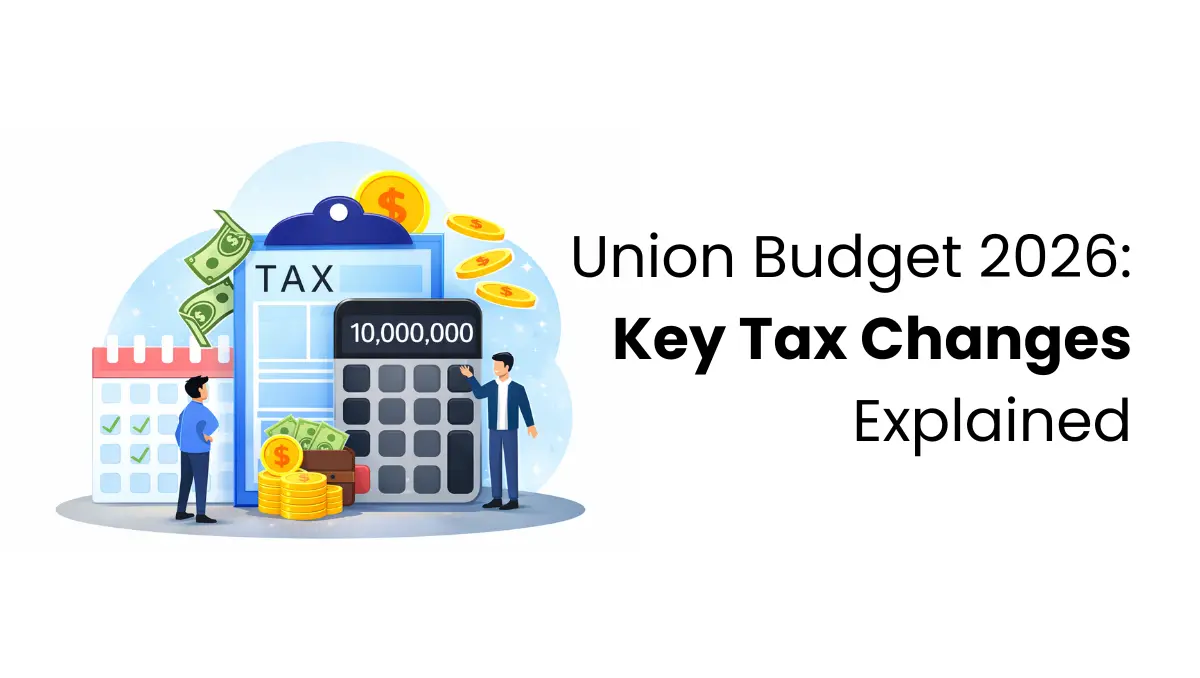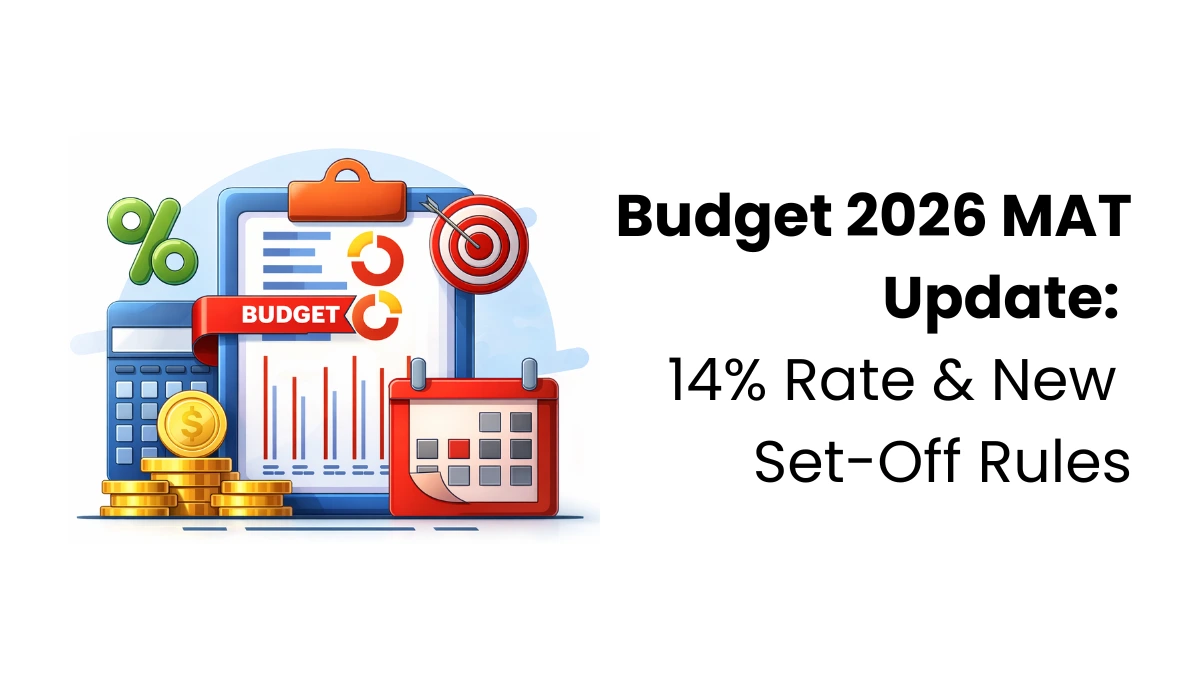New technology makes financial work faster and more accessible, and ChatGPT is leading the way. ChatGPT in accounting is set to bring significant changes. It’s not just helping with ethical decisions in accounting—it’s also making tasks more accurate, efficient, and smooth. This blog will review the top 10 ways to use ChatGPT in accounting. We’ll show you how this AI can make your work simpler and more effective. Let’s see how ChatGPT can make a real difference in your accounting tasks!
Top Ways to Use ChatGPT in Accounting
ChatGPT is becoming popular in many areas, including accounting. When used correctly, this tool can significantly help your daily accounting work. Here’s how you can make the most of ChatGPT for accountants:
1. Handle Invoices and Track Expenses
Creating invoices is a crucial job for accountants, but small mistakes in manual invoicing can lead to incorrect payments. ChatGPT in accounting makes invoicing faster and more accurate, so you avoid costly errors. The software uses OCR technology to pull data from invoices automatically, helping you organize and categorize expenses, so it’s easier to spot where you can save money.
To learn more about these, joining finance courses is the best choice for learners to gain complete knowledge of using ChatGPT in the accounting sector.
2. Manage Repetitive Tasks
Accounting can be boring, especially with tasks like data entry that feel dull and take a lot of time. These tasks can keep you from focusing on more important work that needs your attention. ChatGPT can help by automating these tedious tasks, giving you more time for the complex job that requires your skills.
3. Data Cleaning
ChatGPT can help clean your accounting data, such as customer names, by removing extra characters (like numbers) and eliminating duplicate names in spreadsheets or accounting software.
4. Formatting Output
If you don’t like how your accounting software formats financial statements or reports, you can use ChatGPT to change how they look by uploading files and using simple prompts. ChatGPT can also help you format tables and create CSV files for spreadsheets or other programs.
While ChatGPT in accounting uses natural language processing, it must be advanced enough to create accurate financial statements from transactions alone. Your accounting software is made for that job.
5. Report Narratives and Notes
You can use ChatGPT to add stories and notes to financial reports and statements. It can look at big changes in account balances on the balance sheet or check revenue, expenses, and profits over different periods.
ChatGPT can also suggest ways to boost profits in less formal internal reports. You can tell if you want a short answer or a longer one with a specific number of characters.
Double-check the information to see if you’re using ChatGPT to write formal notes to financial statements based on GAAP or other standards. You must also provide the latest details, including current GAAP standards (or IFRS standards, if needed).
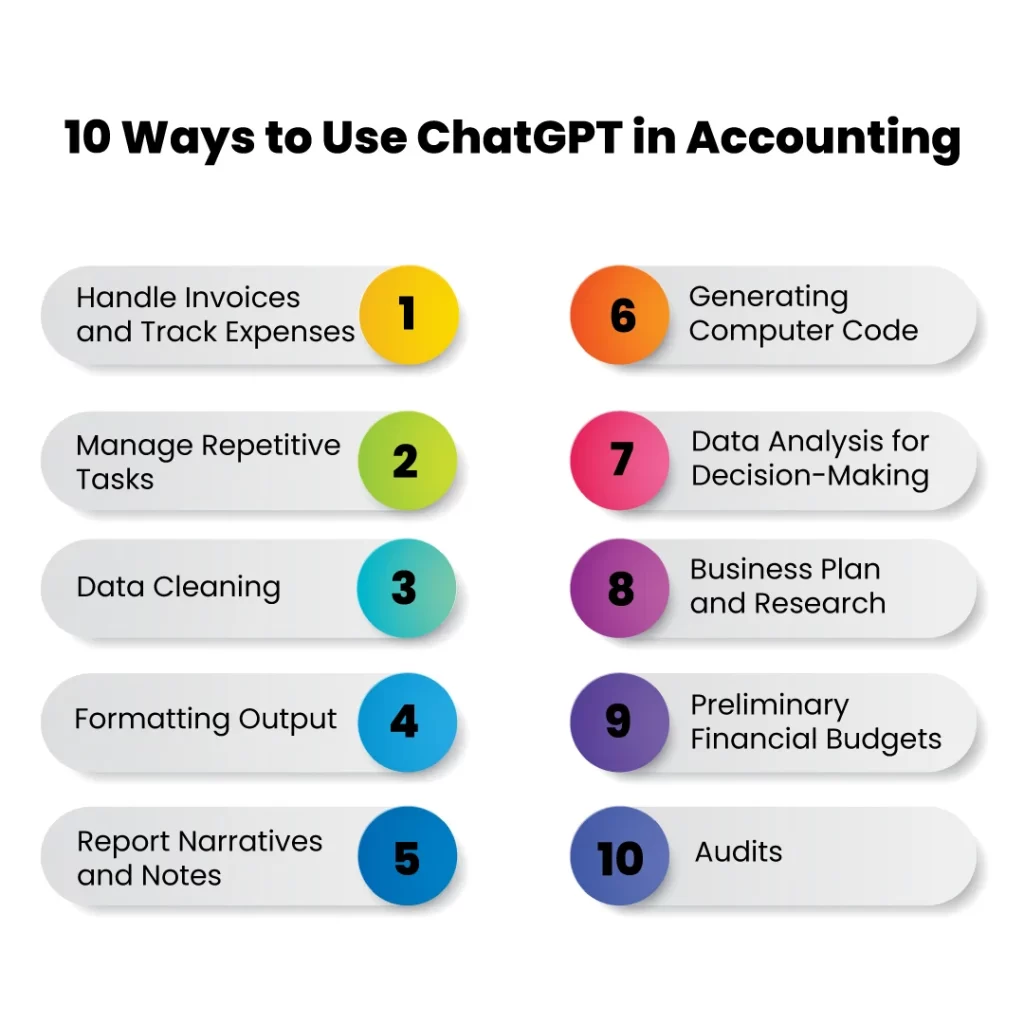
6. Generating Computer Code
ChatGPT can create computer code in the programming language you want, like JavaScript, Python, R, or Excel macros for specific tasks. If the code has mistakes or isn’t working right, you can ask ChatGPT to fix it based on your problems. After ChatGPT writes the code, you can copy and paste it into the right application and follow any extra steps to make it work.
7. Data Analysis for Decision-Making
ChatGPT can analyze financial data and accounting information to identify unusual trends or changes that require further investigation. This useful information can help you make better decisions. For example, a financial analysis from ChatGPT might show ways to improve operations and cut costs, which could increase your business’s profits.
8. Business Plan and Research
When creating a business plan, you must research. ChatGPT can help with initial research, but you should double-check the information. Make sure to give ChatGPT updated details and clear instructions. While ChatGPT can’t create PowerPoint presentations, it can help you generate ideas and text or images for your slides.
9. Preliminary Financial Forecasts and Budgets
ChatGPT can help you make early guesses about demand and create financial forecasts and budgets. However, it must be more accurate to do this alone. Use your knowledge and information to adjust and improve these early forecasts and budgets.
10. Audits
In external audits done by CPA firms, one method called analytic review looks for unusual changes in financial data. ChatGPT can help analyze this financial data as a useful tool for audits. As audit automation programs start using ChatGPT through API connections, it will be easier and more effective for public accounting firms to use its features.
Clients often prepare and give auditors reconciliation schedules for their general ledger accounts to lower audit fees. ChatGPT can help accountants from the company being audited create these schedules.
AI accounting is a key part of the current and future landscape of the accounting profession and digital change. ChatGPT in accounting will have a big impact on accounting. In the future, AI models like ChatGPT will be included in more software programs, and new ways to use AI in accounting will be discovered. To understand it properly, consider joining online accounting courses that allow you to acquire deep knowledge in the accounting sector.




